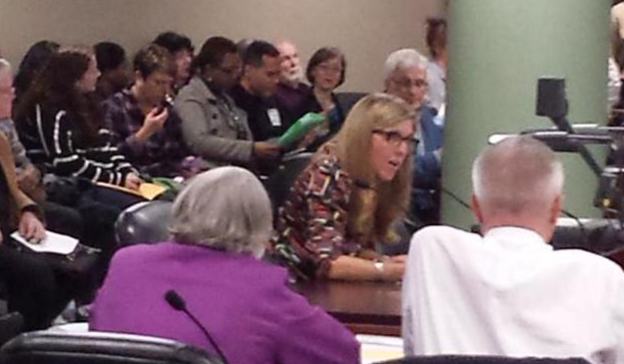
Notes for a Deputation by Atkinson’s Colette Murphy in support of the City of Toronto’s first Poverty Reduction Strategy to Council’s Executive Committee on October 20, 2015.
Mayor Tory, Deputy Mayor McConnell, Executive Committee Members, Good Morning.
I’m one of the 26 Torontonians asked to provide advice to the Deputy Mayor and City staff as they assembled the elements of this strategy over the past nine months. I’m also the Executive Director of the Atkinson Foundation, your partner in this kind of city building work since the 1940s.
Over the years, we’ve taken a run at poverty using the best tools available at the time – sometimes making a dent and other times making only noise. This time, I believe, is different. There are three factors at play in this strategy that make it likely to succeed.
It asks and answers the right questions. The strategy sets our expectations high enough and places accountability exactly where it should be. It’s clear about the city’s character and capacity. It does not run away from poverty’s complexity. It meets head on the reality of immediate needs and their structural roots.
The strategy puts lived experience at the centre. People who are living with poverty were part of the process to develop it. They are not the subjects of this report; they are its co-creators.
It’s comprehensive. The strategy takes into consideration poverty’s negative impact on all of us. So, it enlists everyone to play a part in solutions not only the usual suspects. This report is starting conversations in uncommon places about the City’s economic power to drive growth and share prosperity. In this way, the strategy aims to deliver results now and seven generations from now.
We think these three factors set you up to make real progress. But what the Atkinson Foundation admires most about your new strategy is it shows us that you believe in the potential of every single resident to make a contribution to this city’s vitality – and you’re inviting all of us to work with you to help uncover it.
Toronto’s Poet Laureate-in-waiting Anne Michaels has written: “It’s not a person’s depth you must discover, but their ascent. Find their path from depth to ascent.” Not the depths of our despair, nor the depths to which we can sink; rather, what lifts or raises us up. We must discover the ascending path.
Toronto is on the ascent in the country and the world again. This means that we can look to those cities and countries where the gap between the wealthiest and poorest residents is not growing. These places are doing better by almost every measure than those where inequality is going unchecked. We can set our sights on getting to the top of that list.
In closing, I want to congratulate everyone involved in putting Toronto on this new path. But I especially want to thank Abdi Mohamed whose experiences I read about in your report. “Poverty to me,” he wrote, “ is a crime.” “It is violent.” “It kills like a bullet through the head.” I want him to know that we’ve heard what he wants us to know about poverty. That it’s brutal and punishing and cannot be tolerated. I want to assure him that we’re ready to take action.
And finally, I want to leave you with three questions to keep this important collaborative work moving forward:
How can you use the social procurement and other community wealth building tools in this strategy to engage people who have never thought of themselves as anti-poverty activists?
What’s the one thing each of us can do tomorrow to live into the promise of this strategy?
What do you need from Torontonians like me? What can we do to help you be successful?
Again, thank you for your leadership and for this opportunity to contribute to your deliberations.
